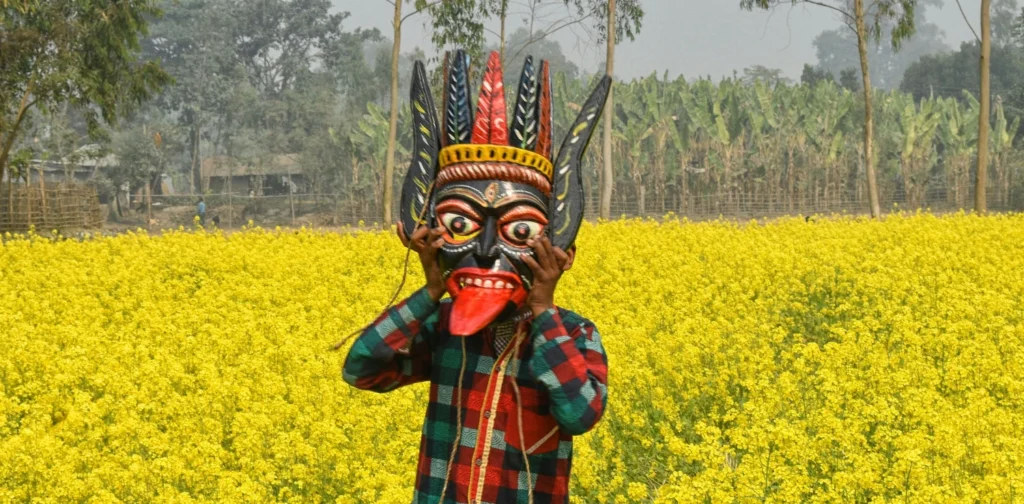Training Rural Youth for Sustainable Tourism

Photo: Tanusree Mitra on Unsplash.
Youth are carriers of our collective future. However, today’s challenges, like climate change and lack of job opportunities, threaten to undermine their future. This struggle is especially present in rural areas. Rural livelihoods primarily depend on nature, and options for decent work remain limited. With this context, developing sustainable tourism may create another pathway in sustainable rural development. In Northern India, for instance, some rural youth train to be nature guides, addressing employability and championing the planet at the same time.
Overlapping Challenges for Rural Youth in India
In recent years, young people have been at the forefront of the fight against the climate crisis that would put their future at risk. At the same time, they have been grappling with more immediate challenges, including the lack of job opportunities.While youth unemployment worldwide is projected to drop below 13% in 2025, progress has been uneven.
India is among countries with a huge youth population, and two-thirds of India’s youth lives in rural areas. The overall unemployment for youth aged 15 and up is 5.2%, with rural youth unemployment rate at 13%. Which means, roughly more than 30 million young people in the rural areas of India are without work. While the unemployment rate is higher in urban areas, rural unemployment presents a complex challenge due to the even more limited job opportunities and types.
Moreover, climate change impacts rural areas disproportionately. Extreme weather events have led to prolonged instability in land productivity that affects livelihoods, particularly in agriculture where more than 40% of Indian rural youth work. Therefore, addressing these overlapping challenges is central to equipping rural youth and ensuring community resilience in the face of environmental, economical, and social uncertainties.
Youth in Sustainable Tourism
In rural areas where job options are limited, sustainable tourism might be a pathway toward decent work and nature conservation at the same time. For example, Meghalaya is a mountainous region in Northern India known for its natural tourist attractions like the Mawphlang Sacred Forest and Nohkalikai Falls. There, young people can learn to be nature guides that lead tourists through nature and share knowledge about local biodiversity, culture, and landscape.
To help prepare rural youth for that kind of opportunity, training programs in sustainable tourism are necessary. As an example, in August and September 2025, a program by NESFAS, a local Indigenous youth-led organization, trained 100 young people in Meghalaya to become professional nature guides.
For aspiring nature guides, it is important to learn about the unique natural landscape and cultural heritage of their own areas. The training in Meghalaya, for instance, introduced rural youth to local biodiversity hotspots, local historical sites, traditions of the local Khasi and Jaintia communities, and more. Additionally, this knowledge must be paired with sustainable tourism principles, economic knowledge of local areas, and professional ethics. So, rural youth must also learn about communication strategies, safety protocols, and business management.
Resilient Youth, Resilient Future
Helping communities sustain their livelihoods through gaining useful knowledge and practical skills is critical amidst economic and climate uncertainties. Particularly, giving opportunities for youth to thrive through capacity development is an important step to building a resilient future for the community.
Governments must play a key role by funding capacity building activities to boost eco-tourism in rural areas. There is no one-size-fits-all solution, but sustainable tourism in rural areas can be beneficial when it is tailored to local needs as well as natural and cultural strengths. Governments, the private sector, and civil society must be partners to local communities in their efforts to create decent work opportunities while protecting their environment. After all, investing in youth and nature means safeguarding the environment and building a resilient future for all.
Editor: Nazalea Kusuma

Co-create positive impact for people and the planet.
Amidst today’s increasingly complex global challenges, equipping yourself, team, and communities with interdisciplinary and cross-sectoral insights on sustainability-related issues and sustainable development is no longer optional — it is a strategic necessity to stay ahead and stay relevant.


 How Human Behaviour Becomes the Real Engine of Sustainability Action
How Human Behaviour Becomes the Real Engine of Sustainability Action  Germany to Improve Protection Measures for Critical Infrastructures
Germany to Improve Protection Measures for Critical Infrastructures  Data Center Boom: Looking at India and Beyond
Data Center Boom: Looking at India and Beyond  Assessing Indonesia’s Step into Global Carbon Markets
Assessing Indonesia’s Step into Global Carbon Markets  Prioritizing Finance for Nature for Healthy and Resilient Ecosystems
Prioritizing Finance for Nature for Healthy and Resilient Ecosystems  Integrating Indigenous Practices into Australia’s Defense Against Heatwaves
Integrating Indigenous Practices into Australia’s Defense Against Heatwaves